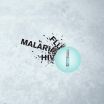(Press-News.org) A common Asian spice and cancer-hampering molecules show promise in slowing the progression of mesothelioma, a cancer of the lung's lining often linked to asbestos. Scientists from Case Western Reserve University and the Georg-Speyer-Haus in Frankfurt, Germany, demonstrate that application of curcumin, a derivative of the spice turmeric, and cancer-inhibiting peptides increase levels of a protein inhibitor known to combat the progression of this cancer. Their findings appeared in the Aug. 14 online edition Clinical Cancer Research; the print version of the article will appear Oct. 1.
Malignant mesothelioma has received widespread notoriety because it occurs frequently in the lung linings of people exposed to asbestos. However, asbestos does not always cause this particular cancer that kills 43,000 people worldwide each year. Many mesothelioma patients were never exposed to asbestos.
"Mesothelioma is a disease that continues to have a significant burden worldwide, and the treatment option is really suboptimal. We must find better ways to treat it," said senior author Afshin Dowlati, MD, Professor of Medicine – Hematology/Oncology, Case Western Reserve University School of Medicine, and member of the Case Comprehensive Cancer Center. "We now understand the mechanisms that drive cell proliferation and growth in malignant mesothelioma."
The culprit in sparking many cancers, particularly mesothelioma, is the intracellular protein and transcription factor STAT3 (signal transducer and activator of transcription 3). A signal transducer and activator is a pathway for instructing the growth and survival of cells, and a transcription factor is a protein that controls genetic information directing cells how to perform. STAT3 is notorious for sending signals to trigger the onset of human cancers and to fuel their continued growth. The great neutralizer of STAT3 is PIAS3 (protein inhibitor of activated STAT3). PIAS3 possesses the strength to inhibit and block STAT3's ability to cause cancer.
In this study, investigators assessed PIAS3 expression in tissue samples of mesothelioma solid tumors and the protein inhibitor's subsequent effects on STAT3 activity. Tissue samples came from three different locations in the country, and information logged for each specimen detailed how long the patient lived and the types of mesothelioma they had. Investigators then linked the levels of PIAS3 with STAT3 activity in each sample. Additionally, investigators examined the effects of curcumin and peptides extracted from PIAS3 segments on malignant mesothelioma cells in vitro.
"In those mesothelioma patients where PIAS3 is low, indeed STAT3 is activated," said Dowlati, Director of the Center for Cancer Drug Development at University Hospitals Seidman Cancer Center. "Mesothelioma patients who have low PIAS3 and high STAT3 have a greater chance of dying early. On the flip side, those patients with a high PIAS3 levels have a 44 percent decreased chance of dying in one year, which is substantial."
Investigators also found that curcumin and PIAS3 peptides raised PIAS3 levels, which brought down STAT3 activity and caused mesothelioma cells to die. Their study served as proof of principle about the effectiveness of these two compounds in treating malignant mesothelioma, a first step in moving a treatment toward clinical trials. Additionally, their findings demonstrated that PIAS3 could serve as a predictive marker for managing mesothelioma because the disease's tumors do not always progress in a consistent, predictable manner, even when tumor stages, grades and clinical presentations appear similar.
"Our findings suggest that PIAS3 expression positively affects survival in mesothelioma patients and that PIAS3 activation could become a therapeutic strategy," Dowlati said. "Our interest for the future is that we want to find better, more simple ways to increase intracellular levels of PIAS3 for malignant mesothelioma through the use of synthetic PIAS3 peptide or curcumin analogs. We must develop a curcumin analog that is absorbable by the human body. Currently, curcumin ingested as the spice turmeric has practically no absorption within the gut."
Their investigation also contributes to the overall body of scientific knowledge for all cancer.
"Our findings beg the question of what role PIAS3 could play in limiting STAT3 activation in other cancers as well," Dowlati said. "There is an opportunity to extend this discovery because a number of cancers are STAT3-activated."
INFORMATION:
The National Institutes of Health supported this research by providing investigators with mesothelioma tissue microarrays through the Mesothelioma Research Bank [CDC NIOSH 1-U19-OH009077-01 National Mesothelioma Virtual Bank for Translational Research]. Research at the Georg-Speyer Haus was supported by the LOEWE Program of Oncogenic Signaling of the State of Hessen in Germany. The Georg-Speyer Haus is funded jointly by the German Federal Ministry of Health and the Ministry of Higher Education, Research and the Arts of the State of Hessen.
About Case Comprehensive Cancer Center
Case Comprehensive Cancer Center is an NCI-designated Comprehensive Cancer Center located at Case Western Reserve University. The center, which has been continuously funded since 1987, integrates the cancer research activities of the largest biomedical research and health care institutions in Ohio – Case Western Reserve, University Hospitals (UH) Case Medical Center and the Cleveland Clinic. NCI-designated cancer centers are characterized by scientific excellence and the capability to integrate a diversity of research approaches to focus on the problem of cancer. It is led by Stanton Gerson, MD, Asa and Patricia Shiverick- Jane Shiverick (Tripp) Professor of Hematological Oncology, director of the National Center for Regenerative Medicine, Case Western Reserve, and director of the Seidman Cancer Center at UH Case Medical Center.
About Case Western Reserve University School of Medicine
Founded in 1843, Case Western Reserve University School of Medicine is the largest medical research institution in Ohio and is among the nation's top medical schools for research funding from the National Institutes of Health. The School of Medicine is recognized throughout the international medical community for outstanding achievements in teaching. The School's innovative and pioneering Western Reserve2 curriculum interweaves four themes--research and scholarship, clinical mastery, leadership, and civic professionalism--to prepare students for the practice of evidence-based medicine in the rapidly changing health care environment of the 21st century. Nine Nobel Laureates have been affiliated with the School of Medicine.
Annually, the School of Medicine trains more than 800 MD and MD/PhD students and ranks in the top 25 among U.S. research-oriented medical schools as designated by U.S. News & World Report's "Guide to Graduate Education."
The School of Medicine's primary affiliate is University Hospitals Case Medical Center and is additionally affiliated with MetroHealth Medical Center, the Louis Stokes Cleveland Department of Veterans Affairs Medical Center, and the Cleveland Clinic, with which it established the Cleveland Clinic Lerner College of Medicine of Case Western Reserve University in 2002. http://casemed.case.edu
Curcumin, special peptides boost cancer-blocking PIAS3 to neutralize STAT3 in mesothelioma
Case Western Reserve scientist helps lead study on potential treatment approaches that could extend life of mesothelioma patients
2014-09-18
ELSE PRESS RELEASES FROM THIS DATE:
A new way to prevent the spread of devastating diseases
2014-09-18
For decades, researchers have tried to develop broadly effective vaccines to prevent the spread of illnesses such as HIV, malaria, and tuberculosis. While limited progress has been made along these lines, there are still no licensed vaccinations available that can protect most people from these devastating diseases.
So what are immunologists to do when vaccines just aren't working?
At Caltech, Nobel Laureate David Baltimore and his colleagues have approached the problem in a different way. Whereas vaccines introduce substances such as antigens into the body hoping ...
LSU Health research discovers means to free immune system to destroy cancer
2014-09-18
New Orleans, LA – Research led by Paulo Rodriguez, PhD, an assistant research professor of Microbiology, Immunology & Parasitology at LSU Health New Orleans' Stanley S. Scott Cancer Center, has identified the crucial role an inflammatory protein known as Chop plays in the body's ability to fight cancer. Results demonstrate, for the first time, that Chop regulates the activity and accumulation of cells that suppress the body's immune response against tumors. The LSU Health New Orleans research team showed that when they removed Chop, the T-cells of the immune system mounted ...
NASA sees western edge of Tropical Storm Fung-Wong affecting Philippines
2014-09-18
The NASA-NOAA Suomi NPP satellite saw the western edge of Tropical Storm Fung-Wong over the central Philippines on Sept. 18. Fung-Wong developed on Sept. 17 as Tropical Depression 16W, and strengthened into a tropical storm by 5 p.m. EDT on Sept. 17.
When NASA-NOAA's Suomi NPP satellite passed over Tropical Storm Fung-Wong on Sept. 18 at 05:24 UTC and the Visible Infrared Imaging Radiometer Suite (VIIRS) instrument aboard captured a visible picture of the storm. The VIIRS instrument revealed that a thick band of powerful thunderstorms spiraled around the southwestern ...
Study provides insight about providing private mental health service to veterans
2014-09-18
A unique partnership to support private efforts to provide mental health services to veterans and their families could provide a model for similar efforts should federal officials decide to expand privately provided health care as part of reform of the VA health system, according to a new RAND Corporation report.
The Welcome Back Veterans Initiative, a joint project of philanthropic groups and major academic medical centers, has provided an array of patient care, education and other services to veterans and their families.
Backed by Major League Baseball and the Robert ...
Benefits of telecommuting greater for some workers, study finds
2014-09-18
CHAMPAIGN, Ill. — Even in a hyperconnected world where laptops, phones, tablets and now even wristwatches are tethered to the Internet 24/7, employers are still wary about the performance and social costs imposed by employees who work remotely.
But a new study by a University of Illinois business professor says telecommuting yields positive effects for two important measures of employee performance, and it can even produce very strong positive effects under certain circumstances for some employees.
According to Ravi S. Gajendran, a professor of business administration ...
Down syndrome helps researchers understand Alzheimer's disease
2014-09-18
MADISON, Wis. – The link between a protein typically associated with Alzheimer's disease and its impact on memory and cognition may not be as clear as once thought, according to a new study from the University of Wisconsin-Madison's Waisman Center. The findings are revealing more information about the earliest stages of the neurodegenerative disease.
The researchers — including lead study author Sigan Hartley, UW-Madison assistant professor of human development and family studies, and Brad Christian, UW-Madison associate professor of medical physics and psychiatry and ...
Research yields a game changer for improving understanding of Ebola and great apes
2014-09-18
A group of international scientists have developed a new method to study Ebola virus in wildlife. Video link here.
The Wildlife Conservation Society (WCS)-led research, published today in the journal PLOS Neglected Tropical Diseases, describes the use of fecal samples from wild great apes to identify populations likely to have been exposed to the virus. This represents a new tool for performing large, population-scale field assessments that can potentially change the way Ebola virus is studied and improve our understanding of the virus' distribution in space and time—a ...
Single dose of antidepressant changes the brain
2014-09-18
A single dose of antidepressant is enough to produce dramatic changes in the functional architecture of the human brain. Brain scans taken of people before and after an acute dose of a commonly prescribed SSRI (serotonin reuptake inhibitor) reveal changes in connectivity within three hours, say researchers who report their observations in the Cell Press journal Current Biology on September 18.
"We were not expecting the SSRI to have such a prominent effect on such a short timescale or for the resulting signal to encompass the entire brain," says Julia Sacher of the Max ...
Gambling with confidence: Are you sure about that?
2014-09-18
Cold Spring Harbor, NY – Life is a series of decisions, ranging from the mundane to the monumental. And each decision is a gamble, carrying with it the chance to second-guess. Did I make the right turn at that light? Did I choose the right college? Was this the right job for me?
Our desire to persist along a chosen path is almost entirely determined by our confidence in the decision: when you are confident that your choice is correct, you are willing to stick it out for a lot longer.
Confidence determines much of our path through life, but what is it? Most people ...
Stem cells use 'first aid kits' to repair damage
2014-09-18
Stem cells hold great promise as a means of repairing cells in conditions such as multiple sclerosis, stroke or injuries of the spinal cord because they have the ability to develop into almost any cell type. Now, new research shows that stem cell therapy can also work through a mechanism other than cell replacement.
In a study published today in Molecular Cell, a team of researchers led by the University of Cambridge has shown that stem cells "communicate" with cells by transferring molecules via fluid filled bags called vesicles, helping other cells to modify the damaging ...
LAST 30 PRESS RELEASES:
Puzzling link between depression and cardiovascular disease explained at last: they partly develop from the same gene module
Synthetic droplets cause a stir in the primordial soup
Future parents more likely to get RSV vaccine when pregnant if aware that RSV can be a serious illness in infants
Microbiota enterotoxigenic Bacteroides fragilis-secreted BFT-1 promotes breast cancer cell stemness and chemoresistance through its functional receptor NOD1
The Lundquist Institute receives $2.6 million grant from U.S. Army Medical Research Acquisition Activity to develop wearable biosensors
Understanding the cellular mechanisms of obesity-induced inflammation and metabolic dysfunction
Study highlights increased risk of second cancers among breast cancer survivors
International DNA Day launch for Hong Kong’s Moonshot for Biology
New scientific resources map food components to improve human and environmental health
Mass General Brigham research identifies pitfalls and opportunities for generative artificial intelligence in patient messaging systems
Opioids during pregnancy not linked to substantially increased risk of psychiatric disorders in children
Universities and schools urged to ban alcohol industry-backed health advice
From Uber ratings to credit scores: What’s lost in a society that counts and sorts everything?
Political ‘color’ affects pollution control spending in the US
Managing meandering waterways in a changing world
Expert sounds alarm as mosquito-borne diseases becoming a global phenomenon in a warmer more populated world
Climate change is multiplying the threat caused by antimicrobial resistance
UK/German study - COVID-19 vaccine effectiveness and fewer common side-effects most important factors in whether adults choose to get vaccinated
New ultraviolet light air disinfection technology could help protect against healthcare infections and even the next pandemic
Major genetic meta-analysis reveals how antibiotic resistance in babies varies according to mode of birth, prematurity, and where they live
Q&A: How TikTok’s ‘black box’ algorithm and design shape user behavior
American Academy of Arts and Sciences elects three NYU faculty as 2024 fellows
A closed-loop drug-delivery system could improve chemotherapy
MIT scientists tune the entanglement structure in an array of qubits
Geologists discover rocks with the oldest evidence yet of Earth’s magnetic field
It’s easier now to treat opioid addiction with medication -- but use has changed little
Researchers publish final results of key clinical trial for gene therapy for sickle cell disease
Identifying proteins causally related to COVID-19, healthspan and lifespan
New study reveals how AI can enhance flexibility, efficiency for customer service centers
UT School of Natural Resources team receives grant to remove ‘forever chemicals’ from water
[Press-News.org] Curcumin, special peptides boost cancer-blocking PIAS3 to neutralize STAT3 in mesotheliomaCase Western Reserve scientist helps lead study on potential treatment approaches that could extend life of mesothelioma patients



